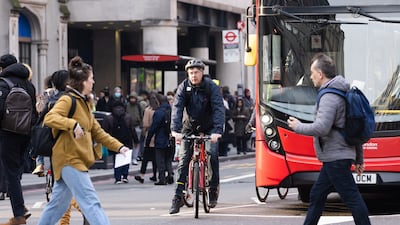Books, songs, poems and doctoral theses have been written about the relationship between Britain and Ireland. Sometimes the two neighbours move together. Irish soldiers have seen heroic service in the British army. That British hero, the Duke of Wellington, was born in Ireland. Irish writers, including William Butler Yeats, Oscar Wilde and George Bernard Shaw, lived at least for a time in London. Yet this closest of relationships also involved centuries of violence and cruelty.
British indifference to the suffering of the Great Famine or “Potato Famine” (1845-52) meant a million Irishmen, women and children died from starvation and disease. Another million emigrated, often to build successful lives around the world. More than 20 American presidents, including Joe Biden, Ronald Reagan and John F Kennedy, boasted Irish heritage, yet historically Britain has often regarded Ireland as culturally rich but economically poor.
For generations, Irish workers escaped relative poverty at home to find jobs in British factories, shipyards and building sites. By 1973, the two nations moved in lockstep to join the European “Common Market”, the precursor of today’s EU, until more recently the two diverged again. The Irish Republic, the only nation sharing a land border with the UK (in Northern Ireland), is one of the small nations that have thrived within the EU.

In 1973, Ireland was demonstrably poorer than Britain (measured in GDP per capita, and in other ways too). Nowadays Ireland is (by the same metrics) considerably richer than the UK. Britain has undergone years of austerity, political crises and now industrial unrest, a cost of living crisis, and an economy that is not growing as strongly as it would within the EU. Food inflation, the Ukraine war, and energy costs impact Ireland too, but their economy is performing so well that Irish politicians are planning a sovereign wealth fund to invest budget surpluses up to €90 billion (almost $98 billion) by 2030.
The idea is to pay for long-term future expenditure on an ageing population, climate change initiatives and restructuring for the digital economy. Finance Minister Michael McGrath said it is “blindingly obvious” that this is the right thing to do, “a once in a generation opportunity to make our nation’s finances safer".
I’ve been at a conference at Maynooth University near Dublin hearing academics, researchers, politicians and journalists celebrating Ireland’s 50 years within the EU – years that have helped make such budget surpluses possible. In his keynote speech, Desmond Dinan, Jean Monnet professor at George Mason School of Public Policy in Virginia, pointed out that Ireland had shrewdly used its position to secure important EU concessions on corporate taxes, paving the way for huge volumes of inward investment to fuel Ireland’s economic boom.

After 2008, Ireland, within the eurozone, accepted the harsh economic medicine necessary following the financial crisis while in Greece, another small nation, political leaders loudly complained about EU harshness. Athens alienated bigger EU players, especially Germany. Dublin, instead, prospered economically, politically and diplomatically.
In 2023, however, it’s not all good news. Gaps between rich and poor in Ireland, housing and other costs remain significant problems, although the country was perversely helped by former British prime minister Boris Johnson. His antics over Europe, Brexit and Northern Ireland burnished Dublin's reputation as a European team player trying to maintain peace in Northern Ireland.
In many conversations at Maynooth, it was striking to me how Ireland has maximised its advantages – its universities, educated workforce, tax regime and the obvious fact that English, the language of international business, is spoken. Foreign investors see Ireland as a stable democracy inside a market of 450 million European consumers unburdened by the costly bureaucratic problems that post-Brexit Britain has inflicted upon itself, even though speakers at Maynooth acknowledged that not every Irish family benefits from the surge in investment.
Sinn Fein – the party created as the political wing of the Provisional IRA – is polling well and mobilising many of those who feel left behind. If Sinn Fein were to lead an Irish government, the image of being open for business investment could be difficult to sustain.
Moreover, Ireland oversold its economic optimism in the “Celtic Tiger” years leading to the financial crisis of 2007-08. The resulting bankruptcies shocked the financial sector, politicians and voters. But for me, as a British outsider who has visited Ireland from Kerry to Cavan and Donegal to Wexford over the years, Maynooth’s “Ireland and the EU at 50” conference demonstrated an arrangement that has benefited both parties.
The new sovereign wealth fund is just one more sign of that success. I left through the bustling shopping malls inside Dublin airport, and wondered if Ireland’s big and problematic British neighbour might learn lessons from Ireland’s success.
On the rugby field this year, Ireland has proved a hugely competitive small nation winning brilliantly against opponents with bigger populations and more resources. On the economic playing field, Ireland is doing the same. The secret seems to be that Ireland has learned to play to its many strengths – and not make silly mistakes.


